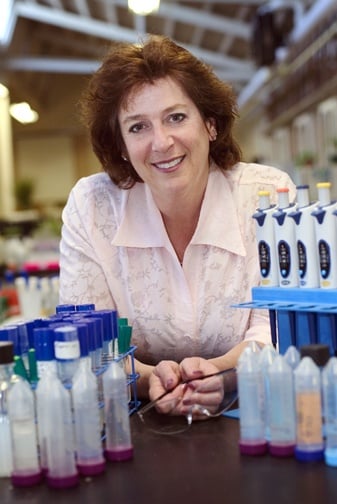 5. Fastest Growing Industries: The Bureau of Labor Statistics (2017) is projecting a faster than average 11% growth in the biotechnology job market through 2026. The “in-demand” biotechnology jobs are Biomedical Engineers (7% growth), Biochemists (11% growth), Medical Scientist (13% growth), Biological/Clinical Technician (13% growth), Microbiologist (8% growth), Process Development Scientist, and Biomanufacturing Specialists.
5. Fastest Growing Industries: The Bureau of Labor Statistics (2017) is projecting a faster than average 11% growth in the biotechnology job market through 2026. The “in-demand” biotechnology jobs are Biomedical Engineers (7% growth), Biochemists (11% growth), Medical Scientist (13% growth), Biological/Clinical Technician (13% growth), Microbiologist (8% growth), Process Development Scientist, and Biomanufacturing Specialists.
4. High Demand for Skilled Entry Level Positions: As stated above, Biological/ Clinical Technicians are in demand. Biotech companies, involved in the manufacturing of pharmaceuticals, industrial and agricultural products, have a high demand for entry level, certified biomanufacturing technicians. These great opportunities highlight the need for 1-year and 2-year biotechnology training programs at all career, technical, and community colleges.
The Bureau of Labor Statistics (2017) forecasts an increase in the need for biotechnicians due to, “Continued growth in biotechnology and medical research is expected to increase demand for these workers.”
The shortfall of skilled entry level technicians needed for research and development and manufacturing has seen large biotech firms not only hiring but making “deals” with educational facilities (career, technical and community colleges) and their students to get them to focus their education and training on biotech for entry into manufacturing.
3. Large Variety of Opportunities and Locations: Virtually every state has biotechnology industries, with many companies having global branches. There are plenty of jobs available in both the science and business sides of biotech in industrial, academic, and governmental facilities. For a handy reference, the Biotechnology Industry Organization lists biotechnology companies and facilities here: https://www.bio.org/bio-member-directory. Most states also have a biotechnology industry support organization anxious to work with colleges to attract students to the biotech market in their area, https://www.bio.org/articles/related-organizations-state-affiliates.
2. More than just learning biotechnology: Biotech courses are skills-based, making them interesting and appropriate for any young adult and adult. They integrate and apply biology, chemistry, mathematics, and physics concepts with hands-on applications. This allows students to see meaning in the math and science in their courses, making these hard to comprehend subjects “do-able” for students of all academic and socioeconomic levels.
In addition, biotechnology courses teach self-directedness, responsibility, organization, and workplace etiquettes, as well as lab proficiencies. These “soft skills” are required to work in a biotechnology facility and employers appreciate the programs that product potential employees with these qualities.
1. Students enter careers with huge benefits, great satisfaction, and interest: Biotechnology jobs are quite specialized and thus are relatively high paying. Depending on the job duties and type and location of the company, a typical biotechnician might start with a salary of $40,000 per year (salary.com) with excellent benefits. For example, a Laboratory Assistant II makes approximately $37K to $44K (salary.com (2018)).Careers in biotechnology are inherently interesting and attractive to students of all ages, including high school graduates, college students, and adults looking for retraining or a career change. Who isn’t interested in cloning, forensics, and saving the world from disease and famine? These important human endeavors attract students to biotechnology programs and keep them there. This means excellent student enrollment and attendance!
How to implement a biotech course at your college?
There is a curriculum and curricular support to facilitate the implementation of biotechnology training programs at virtually any career, technical, or community college. Ellyn Daugherty, EMC/Paradigm Publishing and G-Biosciences have joined forces to help colleges create biotech programs that meet the needs of a school’s local student and industry populations.
Author Ellyn Daugherty’s website has key resources about starting a program (www.bioteched.com) and her complete biotechnology course and lab manual is available through EMC/Paradigm, www.emcp.com/applied-learning/applied-science/biotechnology/. G-Biosciences offers the key reagents for Ellyn’s labs and also standalone biotechnology teaching kits to allow colleges to start adding hands-on biotechnology elements to their existing life science courses.
Adapted with permission from Ellyn Daugherty






